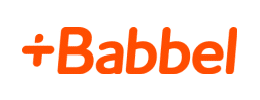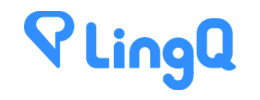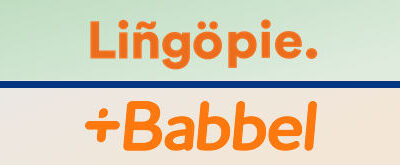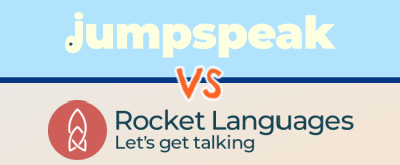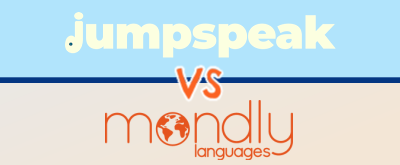Choosing the right language learning app can be challenging, especially with so many options catering to different learning styles and goals. This article compares Babbel’s structured, curriculum-based approach with LingQ’s immersive, content-driven platform to help you decide which one suits your needs best.
Video Review: LingQ vs Babbel
In the video above, Bianca from the Guide 2 Fluency team gives a full comparison of LingQ vs Babbel. She covers how each programme teaches languages, key features, pros and cons, pricing, and whether LingQ or Babbel is worth it compared to other language learning apps. For more detail, be sure to continue reading our full written comparison below.
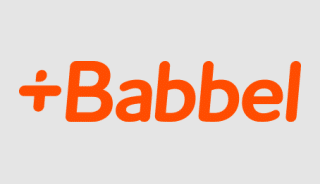
Sale: 55% OFF
Applied in Cart
|
$8-$15/mo |
Babbel offers structured lessons designed to build grammar, vocabulary, and conversational skills through interactive exercises. Its method combines short, guided lessons with real-life dialogues and review tools to ensure consistent progress and retention. |
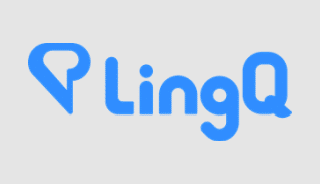
Learn Today
Check Current Offers
|
$9-$15/mo |
LingQ is a language learning app that immerses users in real-world content, such as articles, podcasts, and videos, allowing them to learn through context and exposure. |
Editor’s Choice
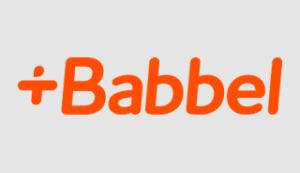
Babbel
- Multiple Subscription Options
- Money Back Guarantee
Pros
- Affordable monthly subscription plans (less than $10/mo)
- Guided, structured lesson plan
- Quick, engaging lesson format
- Much better than LingQ for building writing and speaking skills
- Regular review sessions help with retention
Cons
- No use of video within lessons
- Program overall lacks gamification
Why Babbel Is Better Than LingQ
To kick this comparison off, let’s discuss the major reasons you should consider choosing Babbel over LingQ to help you learn a new language.
More Robust Curriculum
Unlike LingQ, Babbel takes a well-rounded approach to language learning by incorporating writing, speaking, reading, listening, and grammar into its carefully crafted lessons.
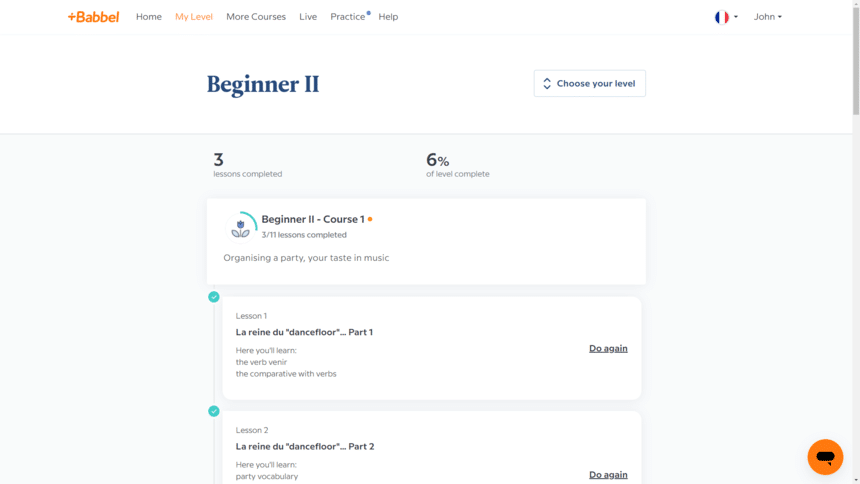
This method focuses on building practical communication skills, supported by review sessions and extras like games, podcasts, and stories to reinforce vocabulary retention and deepen understanding.
Guided Lesson Plan
Another key distinction lies in Babbel’s clear lesson plan and structured curriculum, which LingQ lacks.
Babbel employs a traditional, step-by-step approach to language learning, similar to platforms like Rosetta Stone or Pimsleur, while LingQ focuses on a library of diverse content such as books, podcasts, and news articles for self-directed learning.
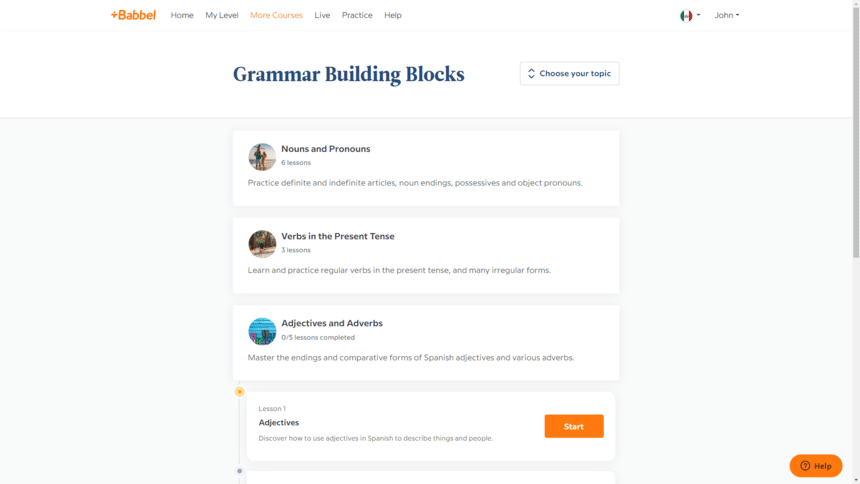
A structured plan offers two main advantages: it allows for steady, systematic progress and ensures each lesson has defined goals, fostering consistency and motivation.
If you thrive on guidance and a more organized framework, Babbel’s methodical courses are likely to be a better fit than LingQ’s open-ended style.
Technically Cheaper Than LingQ
LingQ provides a free version of their app with limited features but primarily focuses on encouraging users to upgrade to one of their premium subscriptions, priced between $9 and $15 per month based on the chosen plan length.
Similarly, Babbel’s pricing ranges from $8 to $15 per month, depending on the subscription term, but it frequently offers discounts. As a result, Babbel technically stands out as the more budget-friendly option for cost-conscious learners.
Engaging Lessons
Next, we find Babbel’s lesson format to be more varied, engaging, and comprehensive compared to LingQ’s.
While Babbel covers both expressive and receptive language skills—speaking, writing, listening, and reading—LingQ leans heavily on reading and listening alone, which we see as a significant limitation.
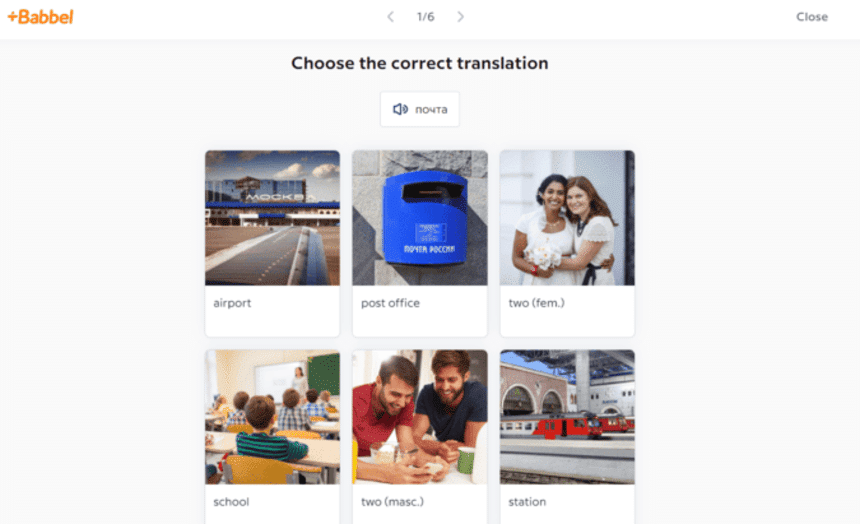
Babbel’s lessons stand out for being enjoyable and fast-paced, featuring a mix of activities such as fill-in-the-blanks, matching pairs, pronunciation practice, picture-to-phrase matching, verb conjugation, and quick grammar tips (similar to Mondly). This variety keeps the learning experience fresh and dynamic, making the lessons feel both effective and fun.
Grammar Instruction
The last standout feature of Babbel’s program compared to LingQ’s is its emphasis on grammar instruction. Babbel seamlessly incorporates concise, digestible grammar lessons into its coursework, focusing on foundational topics like sentence structure, indefinite articles, and irregular verbs.
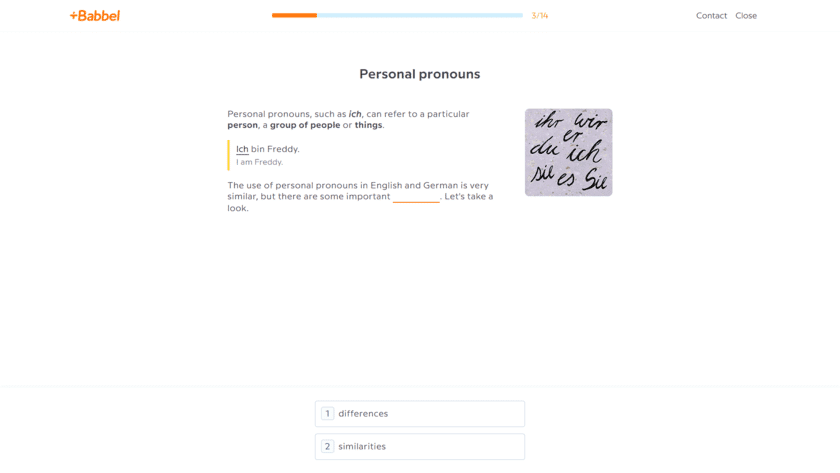
These lessons are designed to be clear and straightforward, striking the right balance to avoid overwhelming new learners—an approach similar to that of Rocket Languages.
In comparison, LingQ places much less importance on grammar, treating it as a secondary element rather than a core focus.
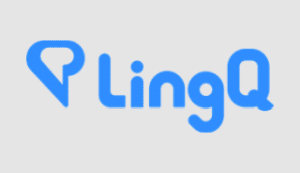
LingQ
- Free Version Available
- 40+ Languages
Pros
- Huge library of content (books, podcasts, etc.)
- Upload you own content and create custom lessons
- Gamified learning experience
Cons
- Free version is pretty limited
- No clear lesson plan
- Limited grammar explanations
Why LingQ Is Better Than Babbel
Now that we’ve covered Babbel in detail, let’s flip the script and discuss the reasons you should choose LingQ to help you learn a foreign language such as Spanish, Italian, or Russian.
Large Content Library
LingQ offers a unique approach to language learning by transforming a variety of written and audio content into interactive lessons. Users can either import their own materials or select from an extensive library that includes books, news articles, podcasts, YouTube videos, and more (somewhat similar to Lingopie and FluentU).
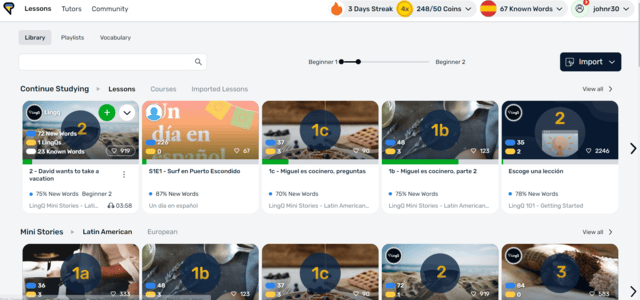
This vast selection covers a broad range of topics, including sports, food, culture, music, travel, and history, allowing learners to immerse themselves in areas they are passionate about.
By engaging with content that aligns with their interests, users not only gain exposure to real-world language use but also enhance their vocabulary retention. The platform allows learners to highlight and save unfamiliar words and phrases, creating personalized lessons that reinforce new vocabulary and grammar in context.
This method links new information to what users already know, making learning more meaningful and effective. LingQ’s flexibility and rich library make it an ideal tool for those who prefer a self-directed, immersive learning experience.
Create Custom Lessons
Secondly, we value that LingQ makes it easy for users to import their own content and turn it into personalized lessons. By simply copying and pasting text or uploading a file, LingQ automatically generates a transcript, converting articles, books, podcasts, and other content into tailored learning materials.
This feature is especially beneficial because it emphasizes the use of relevant and engaging material, which boosts both motivation and effectiveness. Learning through familiar content allows us to focus more on understanding the language rather than the subject matter, while also providing valuable context for new vocabulary. This approach helps make retention easier and enables us to apply new words and phrases in different situations.
Gamified Learning Experience
Lastly, we appreciate how LingQ gamifies the learning experience by rewarding users with points and coins for activities like reading, listening, and learning new words. As users accumulate points, you progress through levels, giving you a sense of accomplishment and advancement.
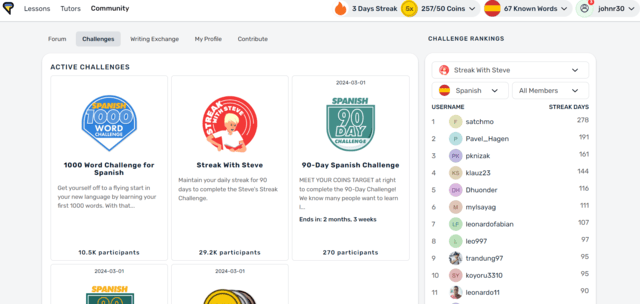
LingQ also tracks our streaks, offers challenges and contests, and features leaderboards to compare your progress with others, creating a sense of healthy competition and motivation.
This gamified approach makes the learning process more enjoyable and engaging, boosting your confidence and inspiring continued progress, which LingQ does well (like Duolingo).
Verdict: Which Language App Should You Choose?
After testing both apps, our team ultimately prefers Babbel for its overall effectiveness and comprehensive approach to language learning.
While LingQ offers some advantages, like its vast content library and gamified learning features, Babbel’s courses stand out for their well-rounded structure and depth. We appreciate Babbel’s clear, organized learning path, which provides a more systematic approach to mastering a language. Unlike LingQ, which primarily focuses on reading and listening, Babbel’s lessons cover speaking, writing, reading, and listening, giving users a more balanced language learning experience.
Another key factor in our preference is Babbel’s approach to grammar instruction. Its integration of grammar lessons within the context of real-world language use makes learning more intuitive and manageable. For those who are serious about truly mastering a language, we highly recommend Babbel over LingQ for its comprehensive and effective learning methodology.
The main difference between LingQ and Babbel lies in their approach to language learning. LingQ focuses on immersive, content-based learning with a vast library of materials for self-directed study, while Babbel offers a more structured, comprehensive curriculum that covers speaking, writing, listening, and grammar in a systematic way.
The choice between LingQ and Babbel depends on your learning style and goals. If you prefer a structured, comprehensive approach with a focus on all aspects of language, Babbel is likely the better option, while LingQ is ideal for those who enjoy immersive learning with real-world content and a more flexible, self-paced experience.

